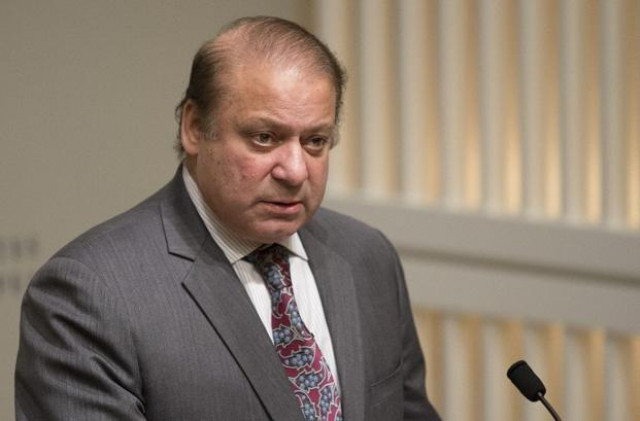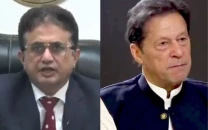Panama leaks panel may be chasing shadows
Top court to resume suo motu case on written off loans after one year

PHOTO: AFP
The most glaring example is the judicial inquiry into bank loans written off, for which the commission in its final report expressed helplessness in getting the required information from financial institutions.
The panel was set up by the Supreme Court after taking cognisance of a letter written by MQM chief Altaf Hussain in 2011. The commission probed over 700 cases of written-off loans amounting up to Rs84 billion from banks between 1971 and 2009. The report finalised in 2013 comprised 13 volumes.
Going through the report gives an indication on how difficult it would be for the newly proposed commission.
Though Information Minister Pervaiz Rashid claims the Panama commission may get all information about politicians, who had their loans written off, from the previous commission’s report, the last inquiry suggests the banks did not even provide full information to the commission.
“Unfortunately, despite best efforts of the commission, the banks and development finance institutions did not provide any information on loans sanctioned or written off on reasons ‘other than business considerations’. There are three reasons informally discussed by some of them. Bankers are afraid of [either] politicians or the civil/military bureaucracy,” wrote Justice (retd) Jamshed Ali, who led that commission.
Opposition parties have already rejected the terms of reference set by the government for the newly proposed commission. Law experts also expect no substantial outcomes of the panel constituted under the Inquiry Commission Act, 1956.
The last commission had received 740 cases with only a small number directly related to well-known politicians and civil or military bureaucrats. Though there were still some prominent names here and there who availed the concessions, their number and quantum was not that large.
The widespread perception that these influential availed most of the bank loans or were largely involved in getting loans written off was not even proved.
To have a loan written off, one has first to be declared a defaulter. In case of politicians, this can lead to disqualification under Article 63 of the Constitution. Therefore, they prefer to have their loans restructured and this cycle continues.
During the examination of cases, the commission had pointed out this was equally true in case of some large businesses. Thus, the number of politicians availing loans might have been much higher than the number appearing in figures for loans written off.
The commission stated in its report that influential groups did pressure the banks but there was no direct evidence of it or it might have been destroyed at the initial stages.
The bankers, however, verbally admitted there was absolutely no doubt about influential groups interfered at the sanctioning stage of loans as well as at the stage of writing them off, says the report, which also reveals that concessions were granted in 232 cases.
Reinvestigations soon
After the passage of one year, the top court has decided to once again start the suo motu case on written off loans.
The SC Registrar Office has written letter to the Bank of Punjab and Bank of Khyber, seeking their replies over the report of the last commission. Ten banks have already submitted their replies in the case.
A senior law officer told The Express Tribune the banks are deliberately not pursuing these cases, forcing the matter into pending for the past nine years.
The SC is also likely to ask the federal government to implement the recommendations of the previous commission.
Published in The Express Tribune, April 28th, 2016.



















COMMENTS
Comments are moderated and generally will be posted if they are on-topic and not abusive.
For more information, please see our Comments FAQ